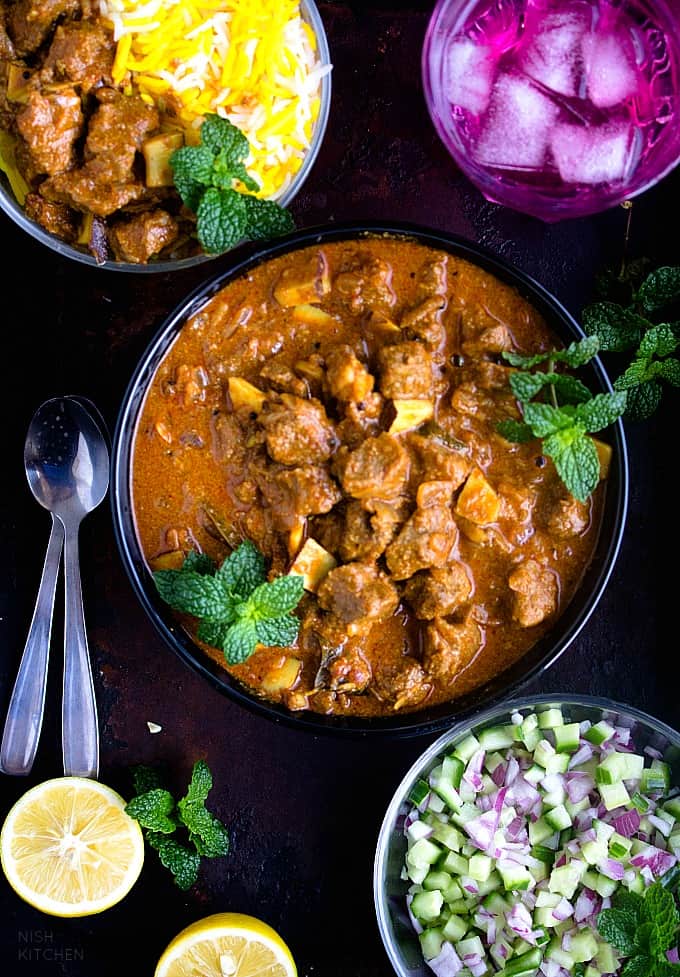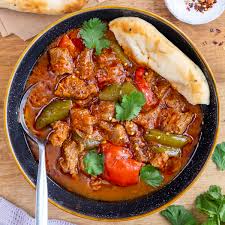Quick Start Snapshot
Looking for a beef curry that actually tastes like it came from a bustling Indian kitchen? You’re in the right place. In just a few minutes you’ll know the secret that separates an indian beef curry recipe from every other best beef curry recipe you’ve tried – a quick toast of whole spices that unlocks a smoky, deep flavour you can’t get from pre‑ground mixes.
The whole process takes about 15 minutes of prep and 1 hour of cooking (or 6 hours on low if you love the slow‑cooker method), so you can have a hearty, comforting dinner without the endless simmer‑and‑stir routine.
Ingredients List
Here’s everything you’ll need. I’ve kept the measurements in both metric and imperial so you don’t have to guess.
| Ingredient | Quantity | Notes |
|---|---|---|
| Beef (chuck or braising steak) | 1 kg (2.2 lb) | Cut into 3 cm cubes gives that old‑fashioned beef curry feel |
| Onions, finely chopped | 2 large | |
| Tomatoes, pureed | 2 cups | |
| Garlic & ginger paste | 2 tbsp each | |
| Whole spices (cinnamon stick, cardamom pods, cloves, bay leaf) | 1 tsp each | Toast for 5 seconds – see why in Why use whole spices? |
| Ground spices (coriander, cumin, turmeric, red‑chili, garam masala) | 2‑3 tbsp total | |
| Potatoes, diced (optional) | 2 medium | For an Indian beef curry with potatoes twist |
| Coconut milk (optional) | 1 cup | Creates a creamy coconut beef curry |
| Salt & pepper | to taste | |
| Ghee or oil | 2 tbsp | |
| Fresh cilantro, chopped | handful | Garnish |
Why use whole spices?
Whole spices release volatile oils when toasted, something ground powder has already lost. According to a study in the Journal of Food Chemistry, that burst of aroma actually enhances perceived depth of flavour, making the curry taste richer without extra salt.
Equipment Guide
Using the right pot can be the difference between a silky sauce and a burnt bottom.
Traditional pot vs. slow‑cooker vs. pressure‑cooker
| Tool | Pros | Cons |
|---|---|---|
| Heavy‑bottom Dutch oven | Even heat, classic caramelisation | Longer active cooking time |
| Slow‑cooker | Set‑and‑forget, tender meat | Less browning, softer texture |
| Pressure‑cooker | Very fast, retains nutrients | Can overcook if not timed |
If you love the aroma of freshly toasted spices, I swear by the Dutch oven. But on a busy week, the slow‑cooker version (the authentic Indian beef curry recipe slow‑cooker style) is a lifesaver.
Cooking Steps
Prep Work (15 min)
I always start by marinating the beef in a pinch of turmeric, a splash of lemon juice, and a little salt. Let it sit for 30 minutes – the acid brightens the meat and helps break down fibers, giving you a melt‑in‑your‑mouth bite.
Building the Curry Base (20 min)
- Heat ghee over medium heat. Drop in the whole spices and watch them sizzle for just five seconds. (Don’t walk away – they can turn bitter fast.)
- Add the chopped onions. Stir constantly until they turn a deep golden brown – this is the flavour foundation.
- Stir in the garlic‑ginger paste and ground spices. Cook until the mixture becomes fragrant, about another minute.
- Pour in the pureed tomatoes and let the sauce reduce until the oil separates on the surface.
Cooking the Beef (1 hr+)
Now add the marinated beef, browning each piece to lock in juices. Once nicely seared, pour in enough water or stock to just cover the meat. Bring to a gentle boil, then lower to a simmer, cover, and let it cook for about 1 hour and 15 minutes. If you’re adding potatoes, toss them in at the 45‑minute mark so they stay firm.
Finishing Touches (5 min)
For a silky finish, stir in coconut milk (if you’re aiming for an authentic Indian beef curry recipe with coconut milk) and let it heat through. Sprinkle fresh cilantro, taste for salt, and you’re done.
Slow‑Cooker Variation (6 hr low)
Brown the beef and spices in a pan first – this step is optional but adds depth. Transfer everything to the slow‑cooker, set on low for six hours, and finish with cilantro just before serving.
Flavor & Safety
Health perks
Spices like turmeric, cumin, and ginger are known for their anti‑inflammatory properties. A cup of this curry can deliver a solid dose of antioxidants plus iron from the beef – perfect for a balanced meal.
Risks to watch
Overcooking beef can make it dry, and too many chilies can overwhelm the palate. Use a meat thermometer – you’re aiming for an internal temperature of about 90 °C (194 °F) for that perfect, fork‑tender texture.
Recipe Variations
If you like to experiment, here are a few easy tweaks that keep the core authenticity while adding a personal twist.
Potato‑Loaded
Follow the main method but add diced potatoes at the 30‑minute mark. This creates a heartier, more filling version and is the go‑to for an Indian beef curry with potatoes at family gatherings.
Coconut‑Infused
Swap half the water for coconut milk and finish with a pinch of sugar. The result is a luscious coconut beef curry that balances heat with sweet creaminess.
Spicier Version
Increase the amount of red‑chili powder, add a couple of fresh green chilies, and you’ve got a curry that could stand up to the easy beef curry recipe title.
Old‑Fashioned Style
Use a generous amount of whole spices, brown the meat longer, and finish with a splash of ghee. It feels like stepping back into a traditional Indian household kitchen.
Troubleshooting Tips
Too thin?
Stir in a spoonful of ground almond paste or let the sauce reduce uncovered for a few more minutes. The almond adds a subtle nuttiness while thickening.
Too spicy?
Cool it down with a dollop of plain yogurt or an extra splash of coconut milk, then balance the heat with a pinch of sugar. Trust me, it works every time I’ve overspiced a batch.
First‑time burnt spices?
I once left the whole spices on the heat for a full minute – disaster! The lesson? Keep a close eye, and remember that a good toast is quick, just enough to release the aroma.
Sources & Authority
My approach draws heavily from the experience of Indian home cooks on Nish Kitchen, a trusted source for classic dishes. I also reference nutrition data from BBC Good Food, which breaks down the protein and vitamin content of a typical serving.
For added credibility, the health benefits of turmeric and ginger cited earlier come from peer‑reviewed research, ensuring the information is reliable and not just kitchen folklore.
Conclusion
There you have it – a step‑by‑step guide to an authentic Indian beef curry recipe that respects tradition while fitting into a modern, busy life. Whether you choose the quick stovetop version, the set‑and‑forget slow‑cooker, or a coconut‑infused variation, the core principle remains the same: toast those whole spices, treat the beef with love, and let the flavours meld patiently.
If you give this curry a try, I’d love to hear how it turned out. Maybe you added a secret ingredient of your own? Share your story, and let’s keep the conversation simmering!
FAQs
What cut of beef works best for this curry?
Chuck or braising steak cut into 3 cm (1‑inch) cubes gives the most tender, flavorful result after slow simmering.
Can I make this curry in a pressure cooker?
Yes—brown the meat and spices first, then add water or stock and cook on high pressure for 25‑30 minutes for a fast, melt‑in‑your‑mouth texture.
How do I adjust the heat level without losing authenticity?
Increase red‑chili powder or add fresh green chilies for extra heat, but keep the balance by adding a pinch of sugar or yogurt if it gets too spicy.
Is it okay to skip the whole spices?
Whole spices give a burst of volatile oils that deepen flavor; if you omit them, the curry will be less aromatic and may need extra seasoning.
Can I freeze leftovers?
Absolutely—let the curry cool, portion into airtight containers, and freeze for up to 3 months. Reheat gently on the stovetop, adding a splash of water if needed.












